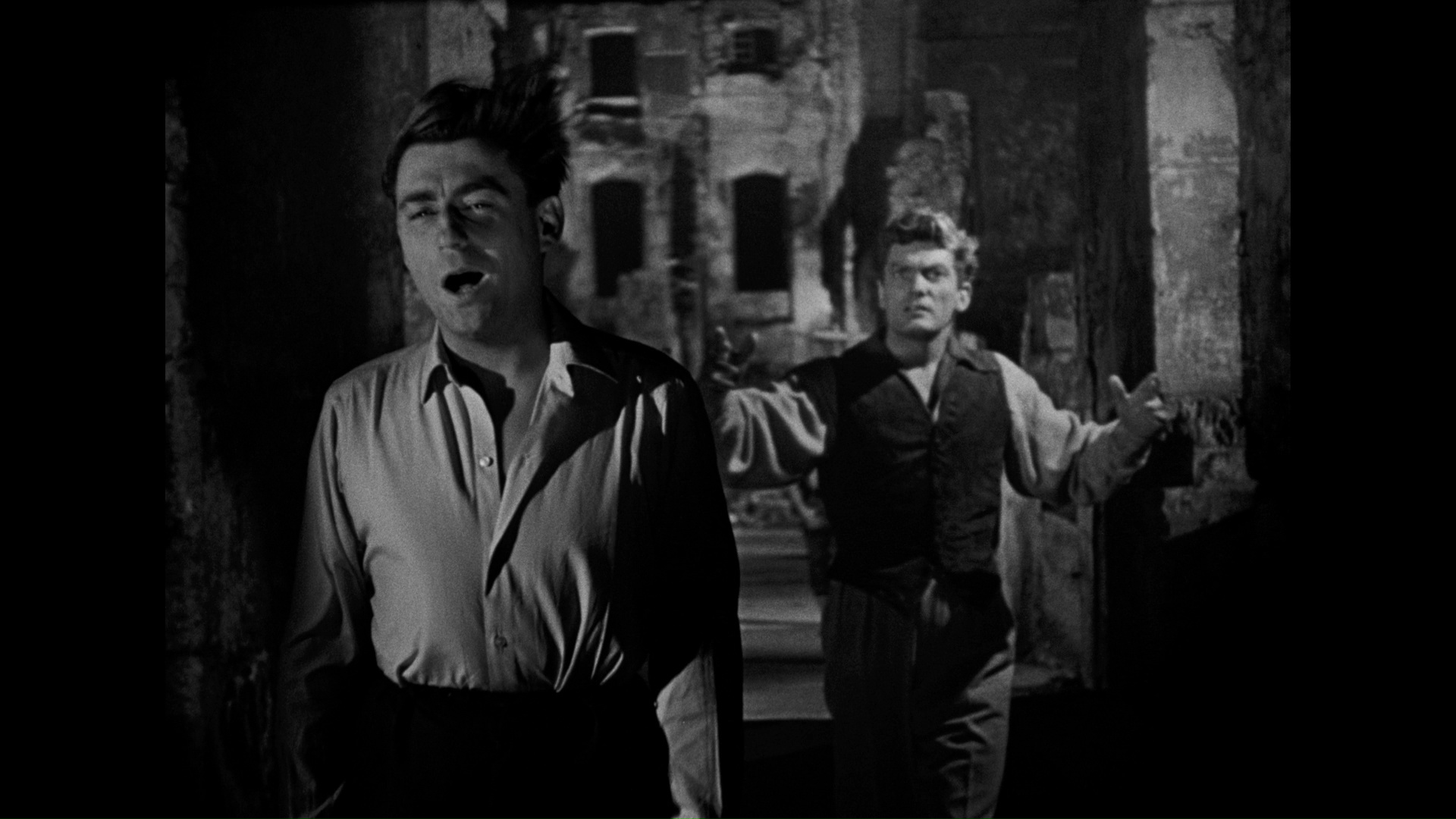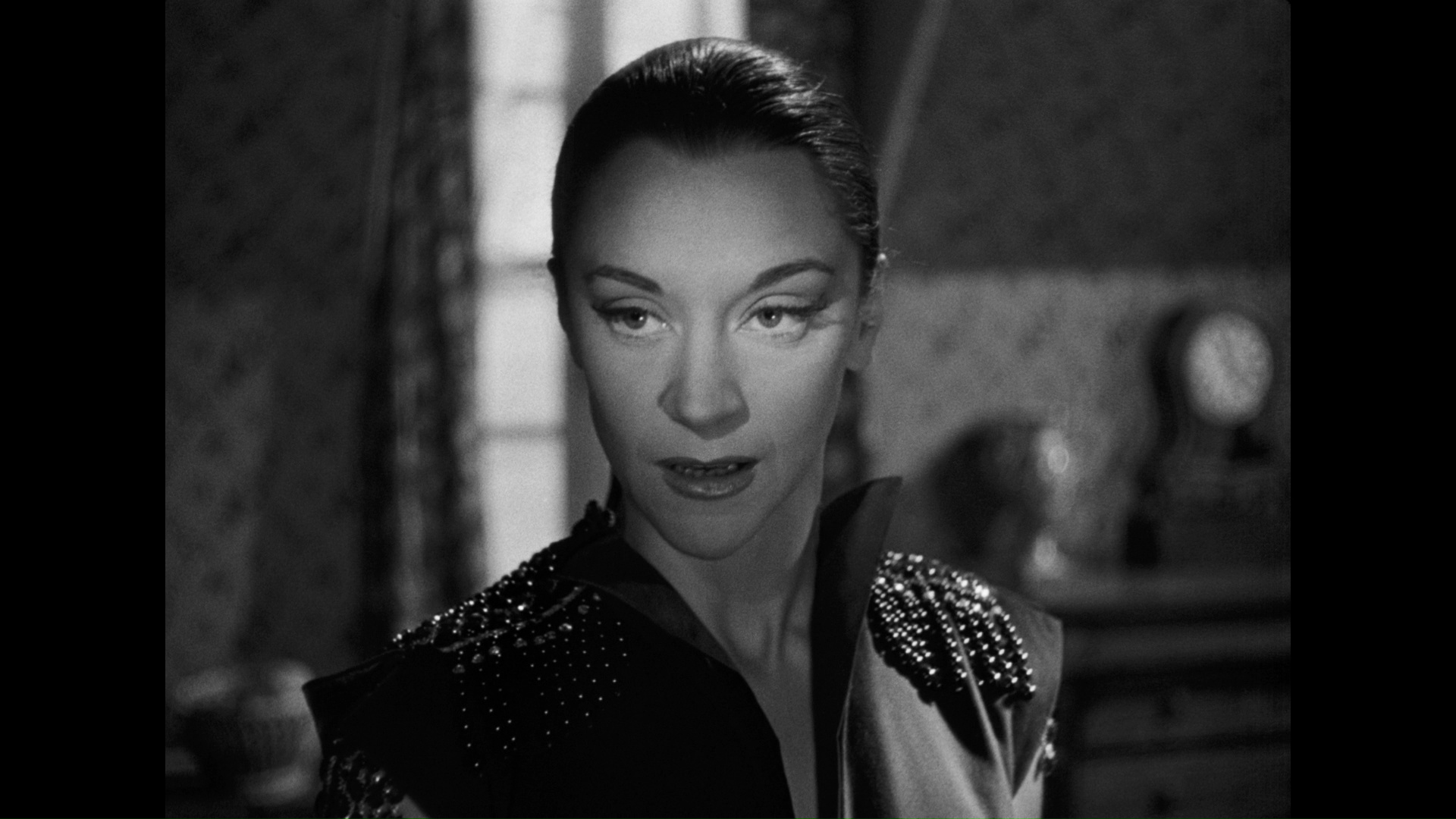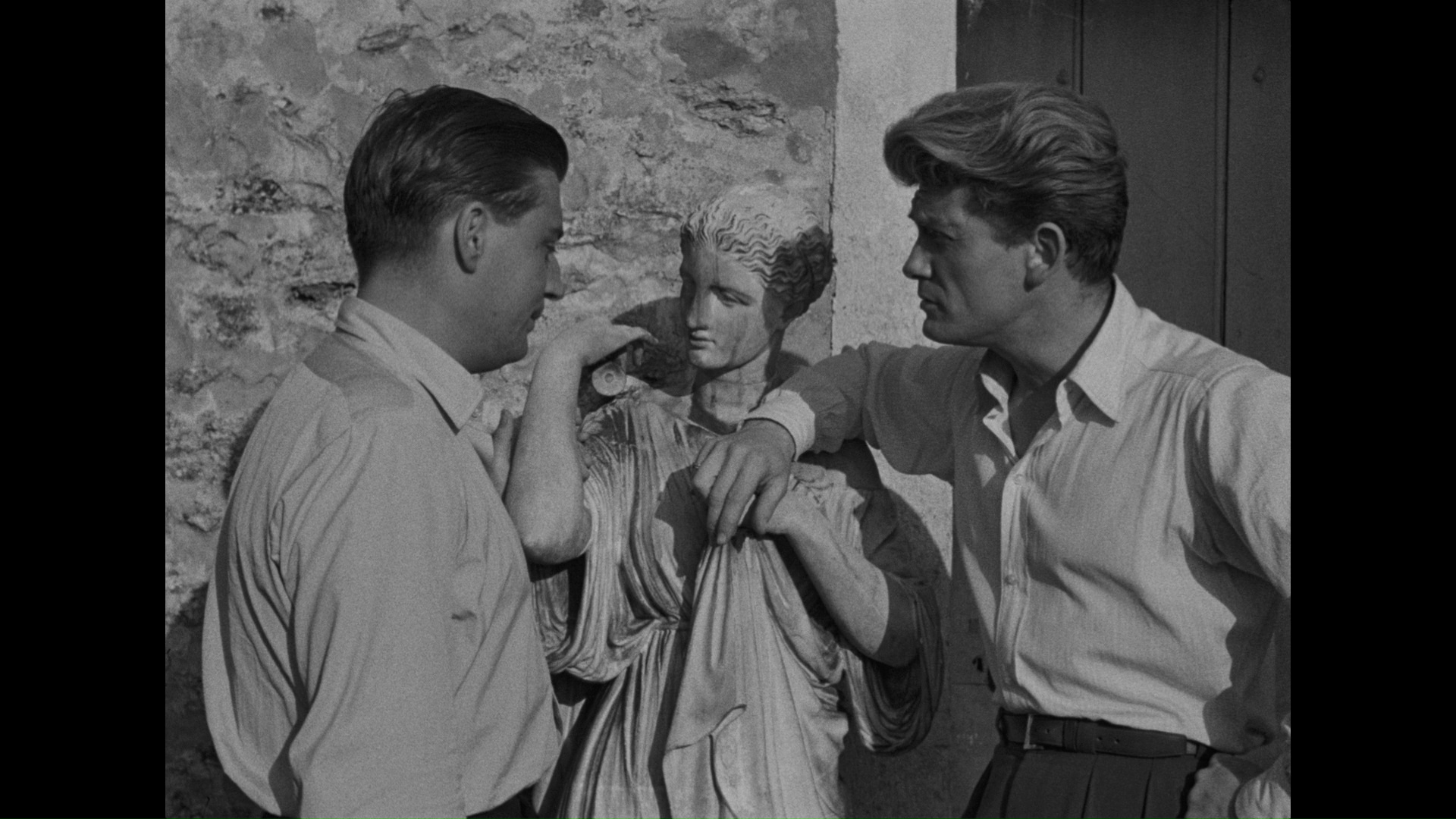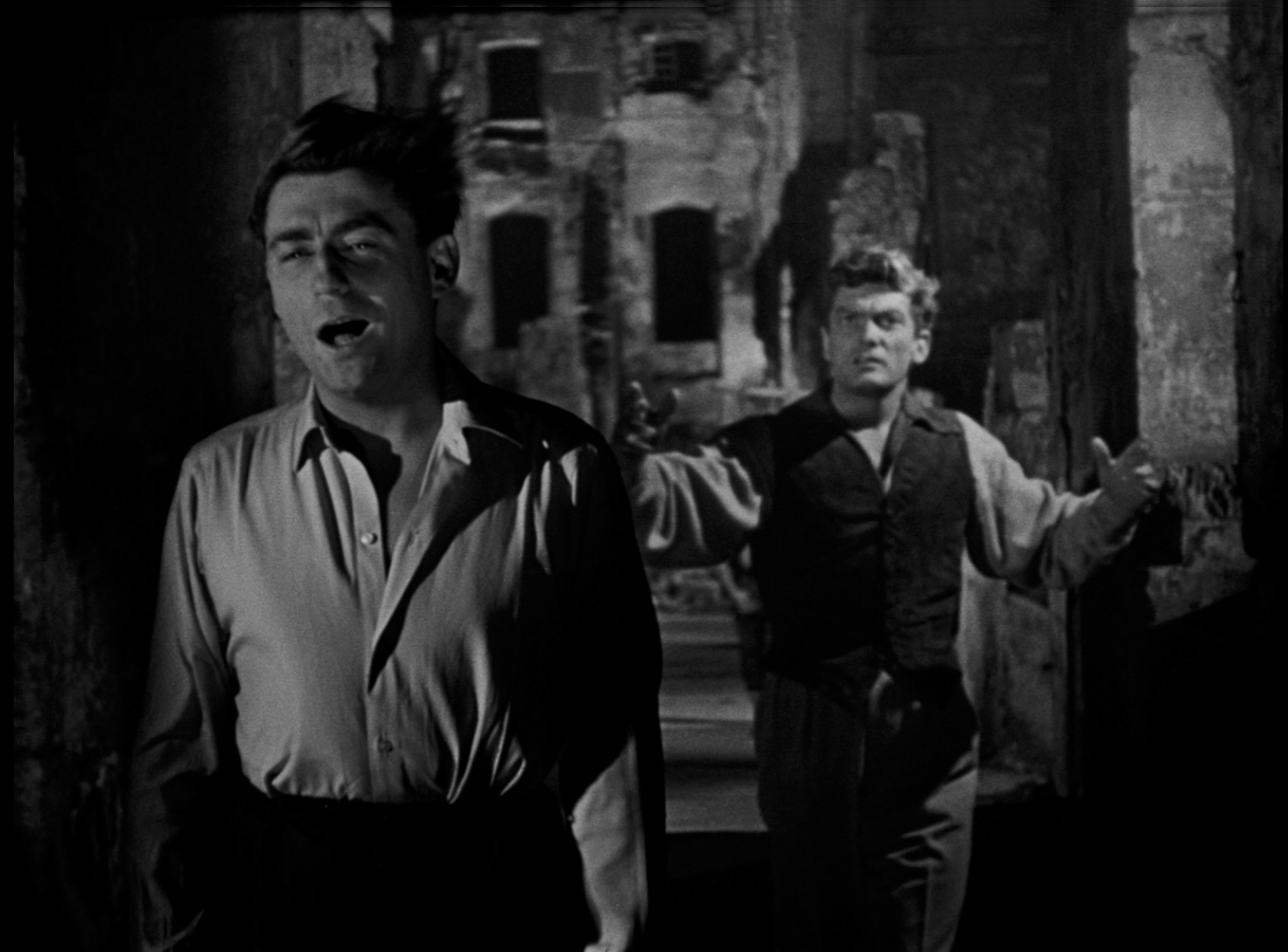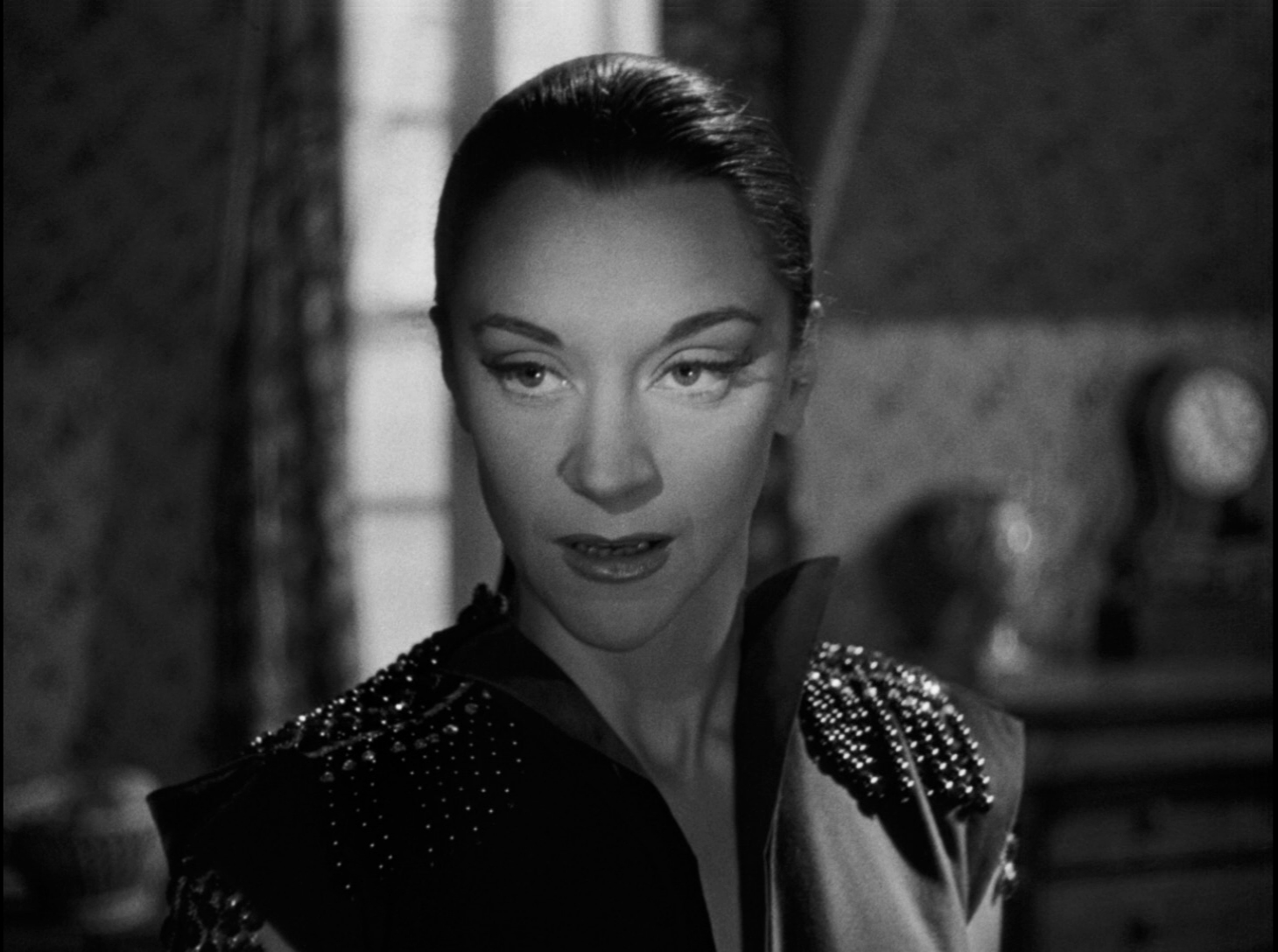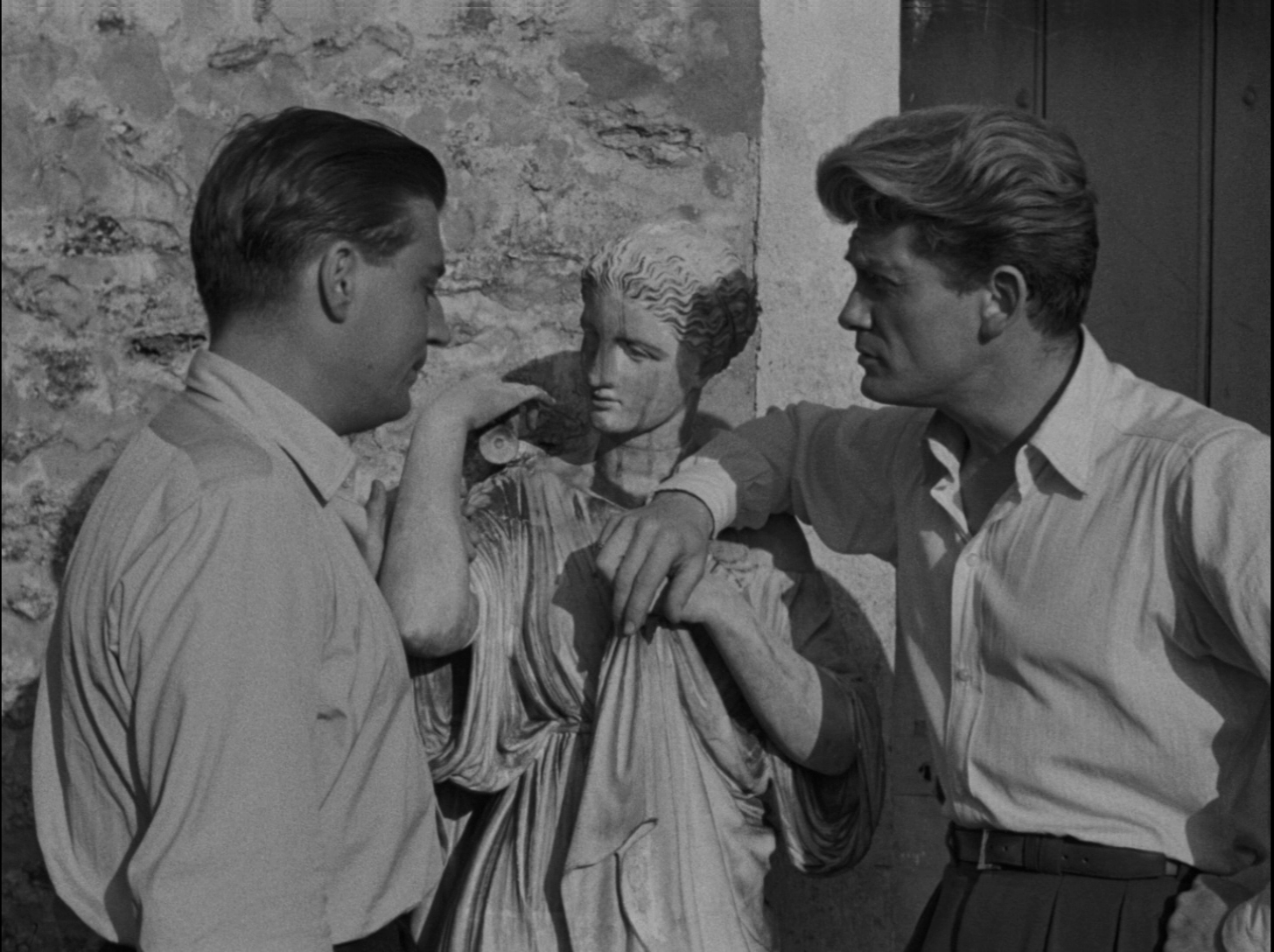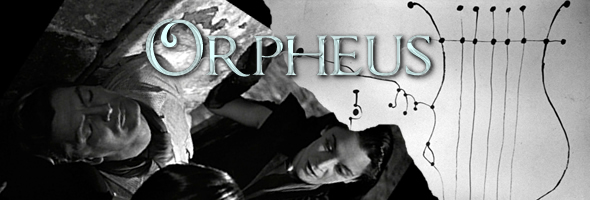
B&W, 1950, 95 mins. 41 secs.
Directed by Jean Cocteau
Starring Jean Marais, Francois Perier, Maria Casares, Marie Dea, Juliette Greco, Henri Cremieux
BFI (Blu-ray & DVD) (UK RB/R2 HD/PAL),Criterion (Blu-ray & DVD) (US RA/R1 HD/NTSC), Madman (Australia R4 PAL)
 hardly the most prolific of directors,
hardly the most prolific of directors, 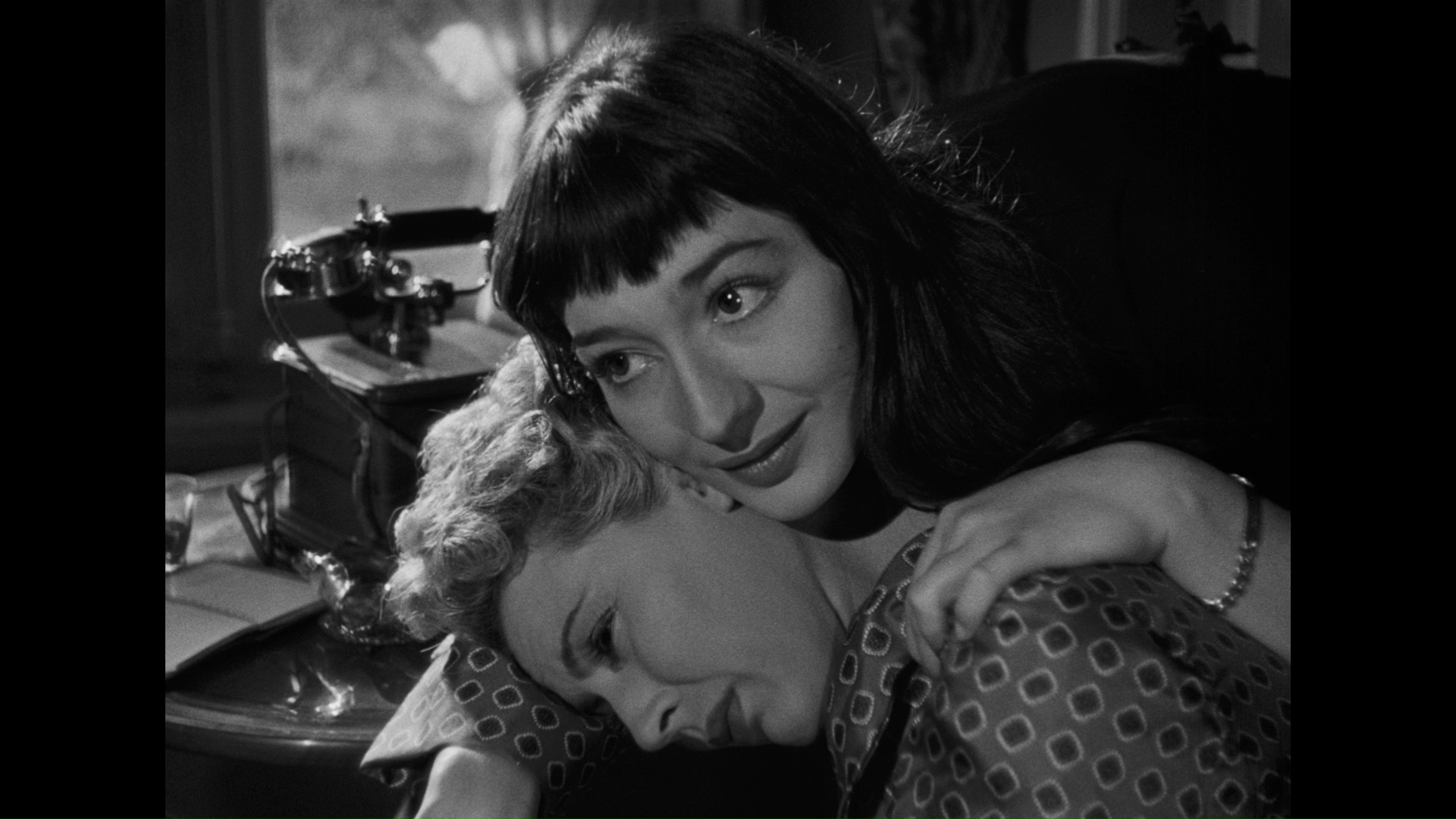 poet-novelist-filmmaker Jean Cocteau remains one of the most important French directors thanks to his handful of surrealist masterpieces. The most accessible of these, Beauty and the Beast, would be enough to cement anyone's film reputation, but four years later he followed it with another classic, this time derived from Greek mythology. Orphée, better known as Orpheus, transposes the story of a singer seeking to retrieve his beloved from the underworld into postwar France, where the poet Orpheus (Marais) is successful (albeit not entirely respected by his peers) and suffering from writer's block which causes him to neglect his wife, Eurydice (Dea). A mysterious princess (Children of Paradise's Casares) and her two henchmen accidentally mow down another writer with their car and spirit Orpheus along as a witness, only for him to become entranced by an eerie voice emanating from the radio. When the princess resurrects the dead man and passes into another realm through a mirror, Orpheus tries to go back to his regular life... but finds the process complicated by fate, leading to a life-changing trip into the realm of the dead.
poet-novelist-filmmaker Jean Cocteau remains one of the most important French directors thanks to his handful of surrealist masterpieces. The most accessible of these, Beauty and the Beast, would be enough to cement anyone's film reputation, but four years later he followed it with another classic, this time derived from Greek mythology. Orphée, better known as Orpheus, transposes the story of a singer seeking to retrieve his beloved from the underworld into postwar France, where the poet Orpheus (Marais) is successful (albeit not entirely respected by his peers) and suffering from writer's block which causes him to neglect his wife, Eurydice (Dea). A mysterious princess (Children of Paradise's Casares) and her two henchmen accidentally mow down another writer with their car and spirit Orpheus along as a witness, only for him to become entranced by an eerie voice emanating from the radio. When the princess resurrects the dead man and passes into another realm through a mirror, Orpheus tries to go back to his regular life... but finds the process complicated by fate, leading to a life-changing trip into the realm of the dead.
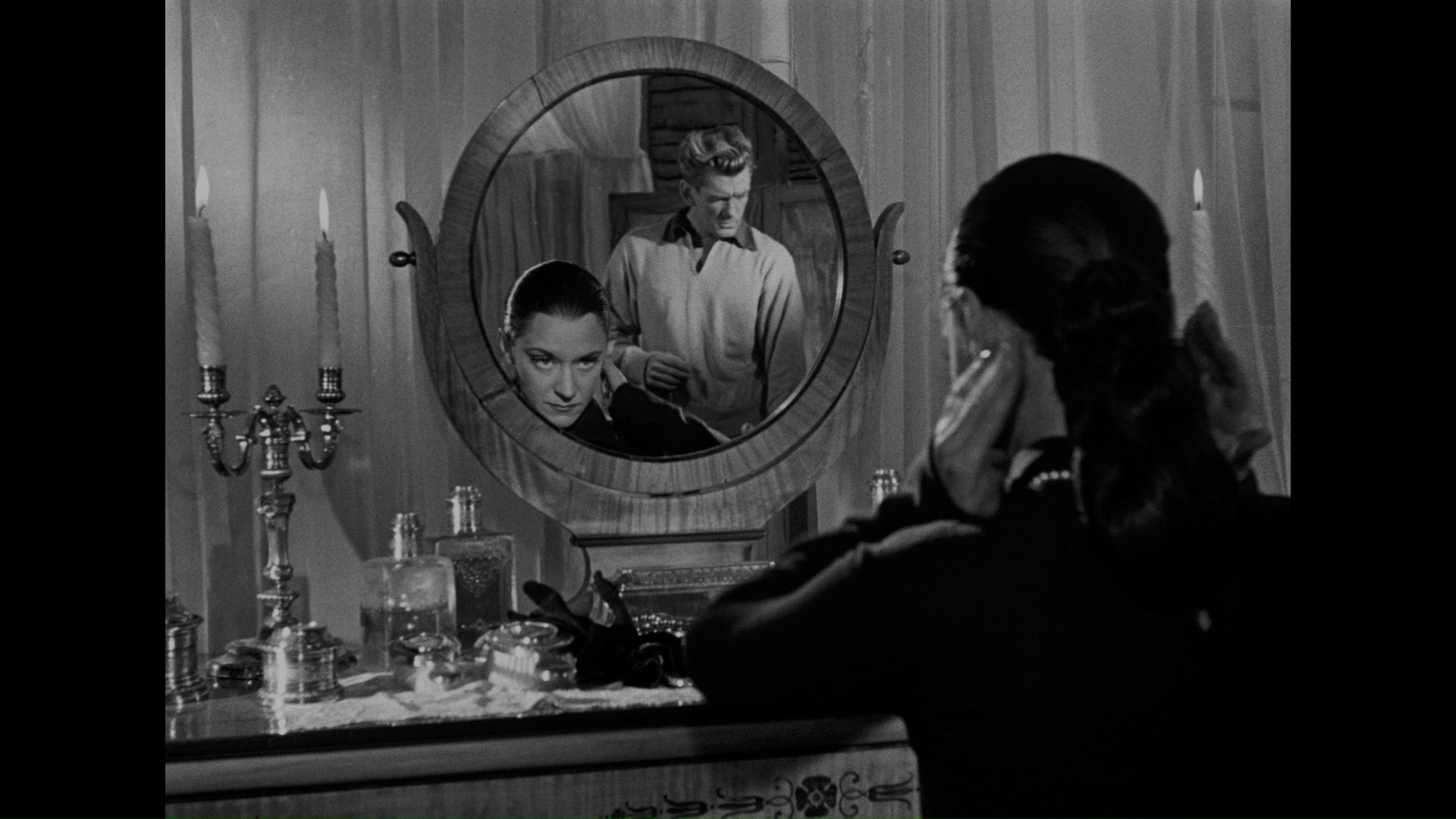 and a wonderful climactic flourish that finds two actors "swimming" through the dark ruins of the world of the dead. Apart from regular muse Marais, the film finds several of Cocteau's regular
and a wonderful climactic flourish that finds two actors "swimming" through the dark ruins of the world of the dead. Apart from regular muse Marais, the film finds several of Cocteau's regular 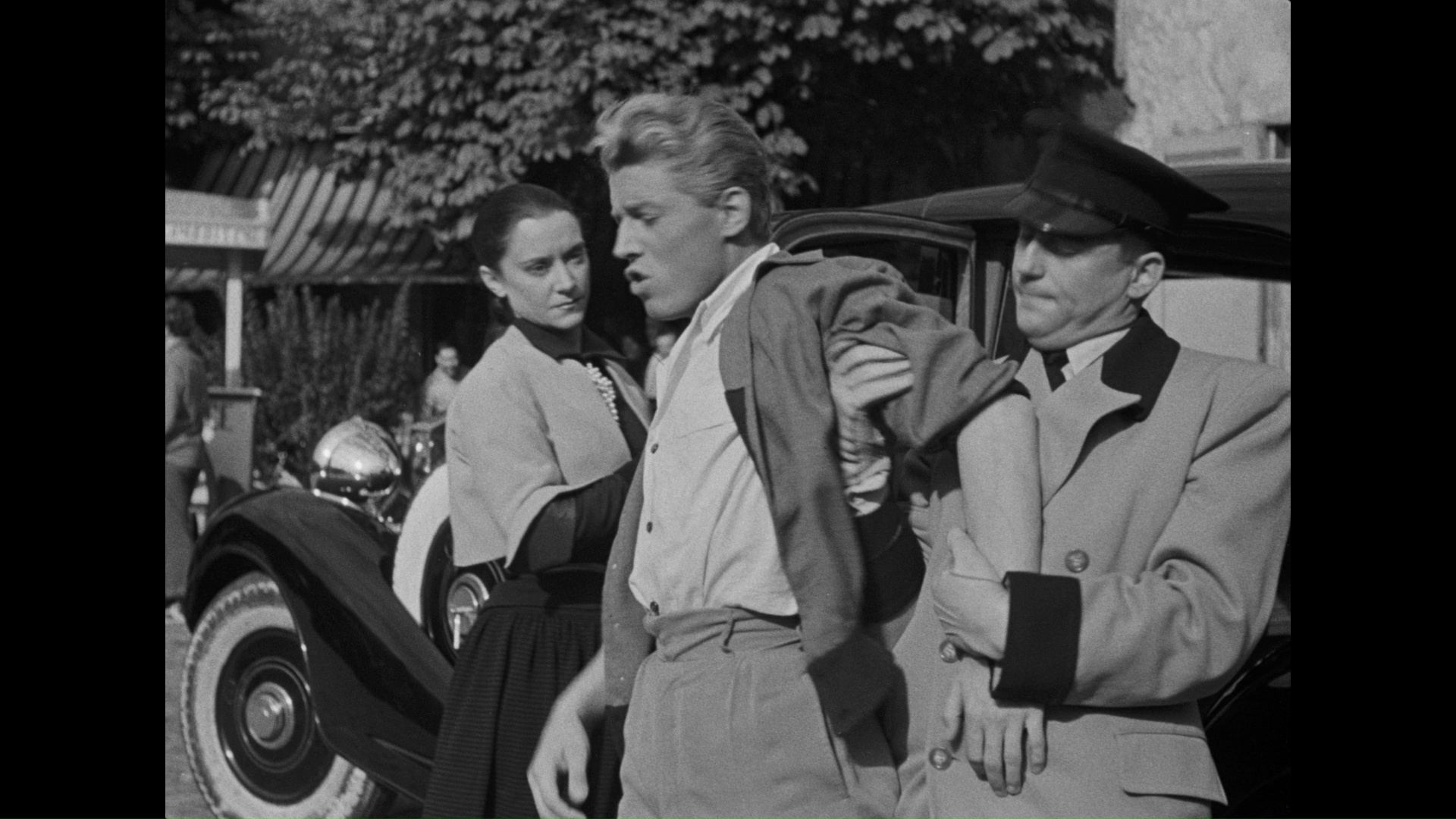 collaborators here including composer Georges Auric, who was about to transition to Hollywood films like Roman Holiday. Also for French cinema die-hards, future avant garde/horror director Jean-Pierre Mocky (Litan, Solo) pops up for a quick musical cameo, too. And for '80s pop fans, the image of Marais lying on his own reflection was later used by The Smiths for the cover of their single for "This Charming Man."
collaborators here including composer Georges Auric, who was about to transition to Hollywood films like Roman Holiday. Also for French cinema die-hards, future avant garde/horror director Jean-Pierre Mocky (Litan, Solo) pops up for a quick musical cameo, too. And for '80s pop fans, the image of Marais lying on his own reflection was later used by The Smiths for the cover of their single for "This Charming Man."
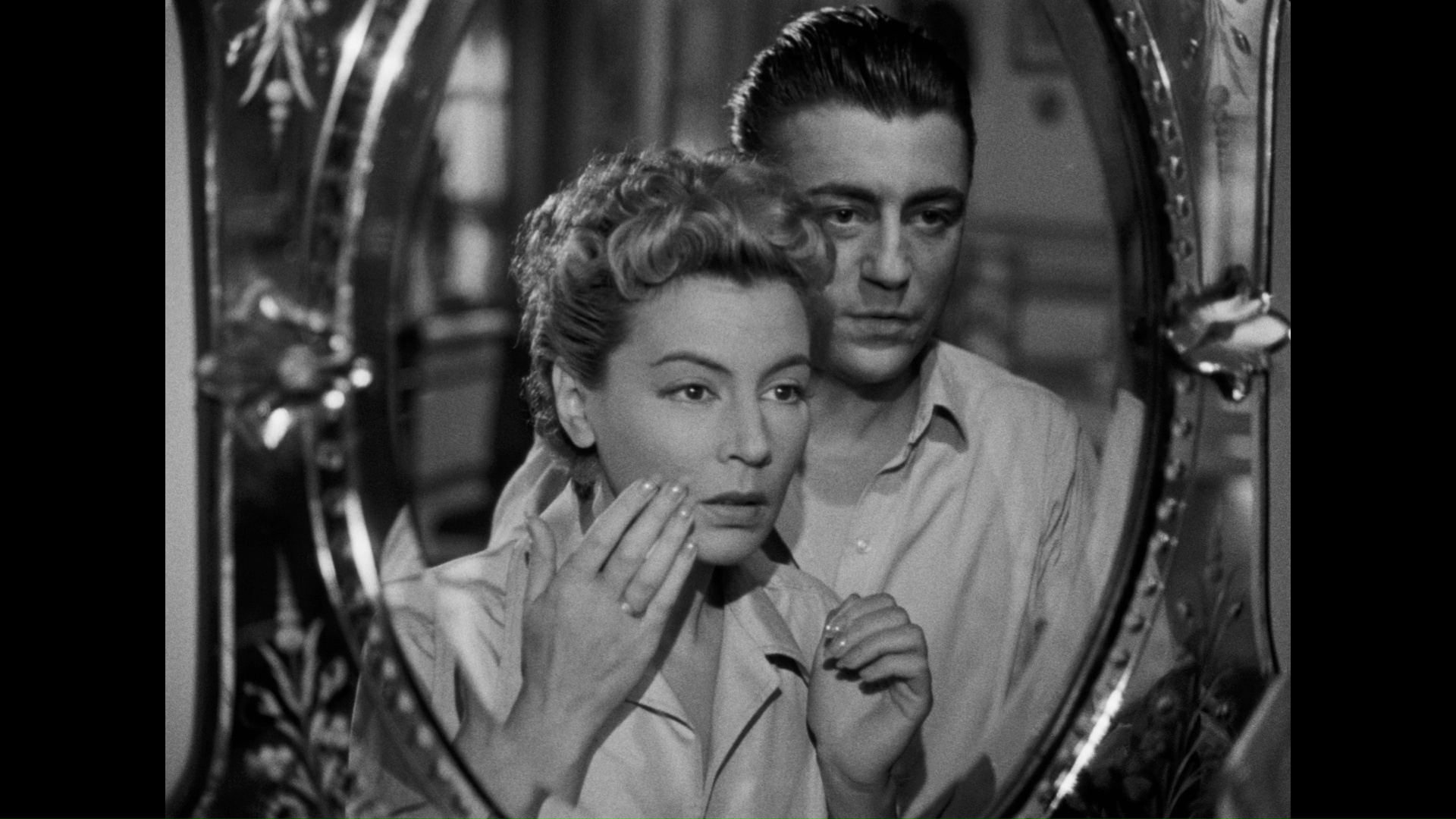 with beautiful detail, mild and natural-looking levels of film grain, and
with beautiful detail, mild and natural-looking levels of film grain, and 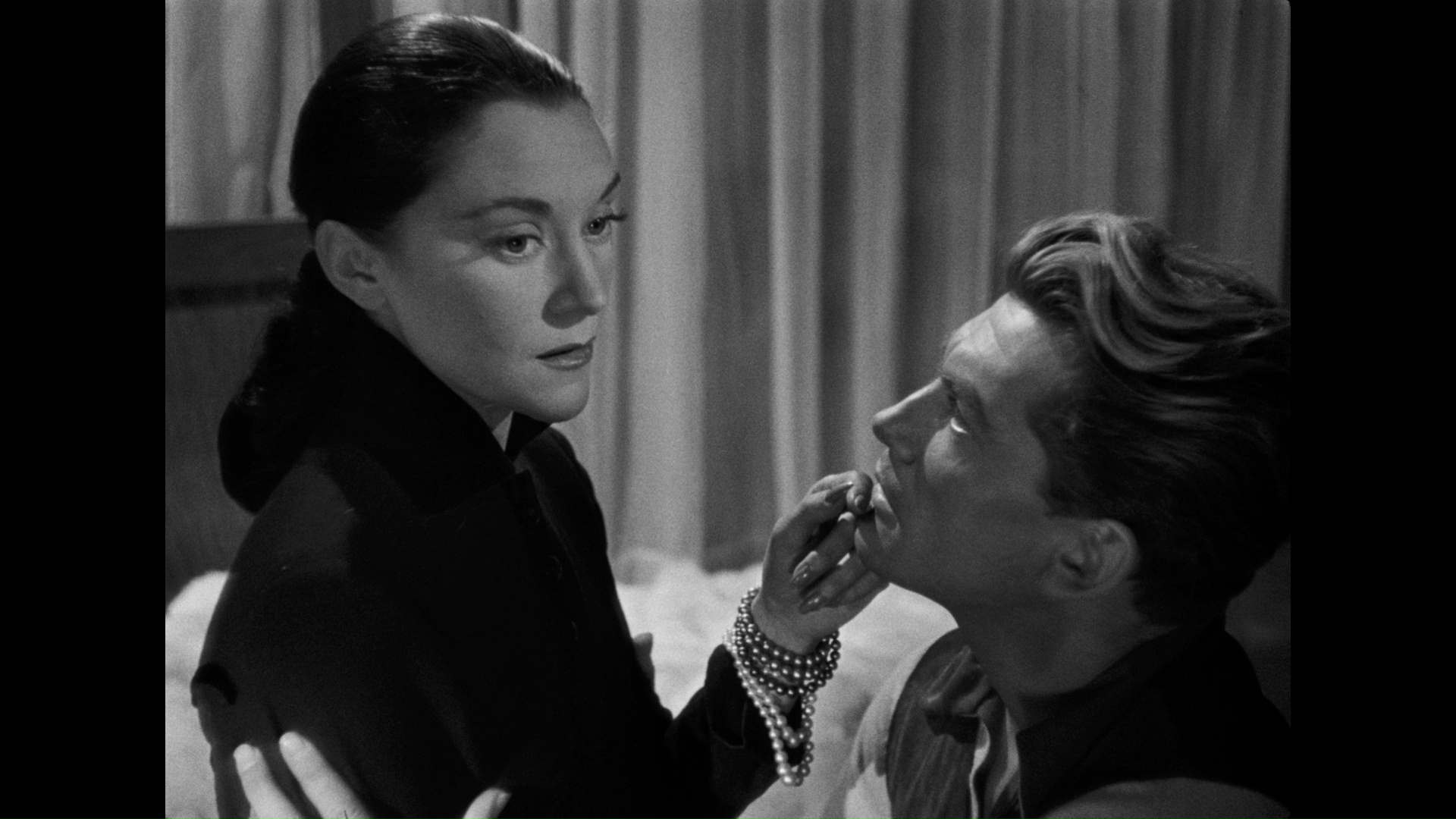 improved black levels. The only significant hiccup is a very soft-looking extended shot at the 49-minute mark, but it's always looked dupey and doesn't reflect a shortcoming on the part of the transfer. The mono audio sounds excellent throughout, with optional English subtitles.
A slew of additional extras has been added here beginning with a feature-length commentary by French film writer James S. Williams who discusses Cocteau's multiple creative pursuits and their links to this film, the histories of the significant actors in this film (with Casares being the obvious standout), and the odd trivia behind the locations including the cafe and the bombed-out setting of the finale. A 2008 video interview with assistant director Claude Pinoteau called "Jean Cocteau and His Tricks" (a title that could be a double entendre if you know about the romantic history behind this film) spotlights the director's famed ability to use simple sleight of hand to achieve his poetic special effects, while the director himself appears for two '50s TV interviews, "40 Minutes with Jean Cocteau" (1957) and the thoughtful "In Search of Jazz" about the creation of his soundtracks. "La villa Santo-Sospir" is a 1951 16mm Cocteau short in color featuring a peek at his home at the time in Villefrance-sur-Mer and the copious artwork he designed on the walls, along with studies of his drawings and flowers. The set is rounded out with a gallery of beautiful stills shot by Roger Corbeau, newsreel footage of the bombed Saint-Cyr military academy seen in the film, the theatrical trailer, and an illustrated booklet including the essay "Through a Glass, Amorously" by Mark Polizzotti, Cocteau's own notes about the film (including a great little observation about the ending), and Williams' notes about the "Santo-Sospir" short.
improved black levels. The only significant hiccup is a very soft-looking extended shot at the 49-minute mark, but it's always looked dupey and doesn't reflect a shortcoming on the part of the transfer. The mono audio sounds excellent throughout, with optional English subtitles.
A slew of additional extras has been added here beginning with a feature-length commentary by French film writer James S. Williams who discusses Cocteau's multiple creative pursuits and their links to this film, the histories of the significant actors in this film (with Casares being the obvious standout), and the odd trivia behind the locations including the cafe and the bombed-out setting of the finale. A 2008 video interview with assistant director Claude Pinoteau called "Jean Cocteau and His Tricks" (a title that could be a double entendre if you know about the romantic history behind this film) spotlights the director's famed ability to use simple sleight of hand to achieve his poetic special effects, while the director himself appears for two '50s TV interviews, "40 Minutes with Jean Cocteau" (1957) and the thoughtful "In Search of Jazz" about the creation of his soundtracks. "La villa Santo-Sospir" is a 1951 16mm Cocteau short in color featuring a peek at his home at the time in Villefrance-sur-Mer and the copious artwork he designed on the walls, along with studies of his drawings and flowers. The set is rounded out with a gallery of beautiful stills shot by Roger Corbeau, newsreel footage of the bombed Saint-Cyr military academy seen in the film, the theatrical trailer, and an illustrated booklet including the essay "Through a Glass, Amorously" by Mark Polizzotti, Cocteau's own notes about the film (including a great little observation about the ending), and Williams' notes about the "Santo-Sospir" short.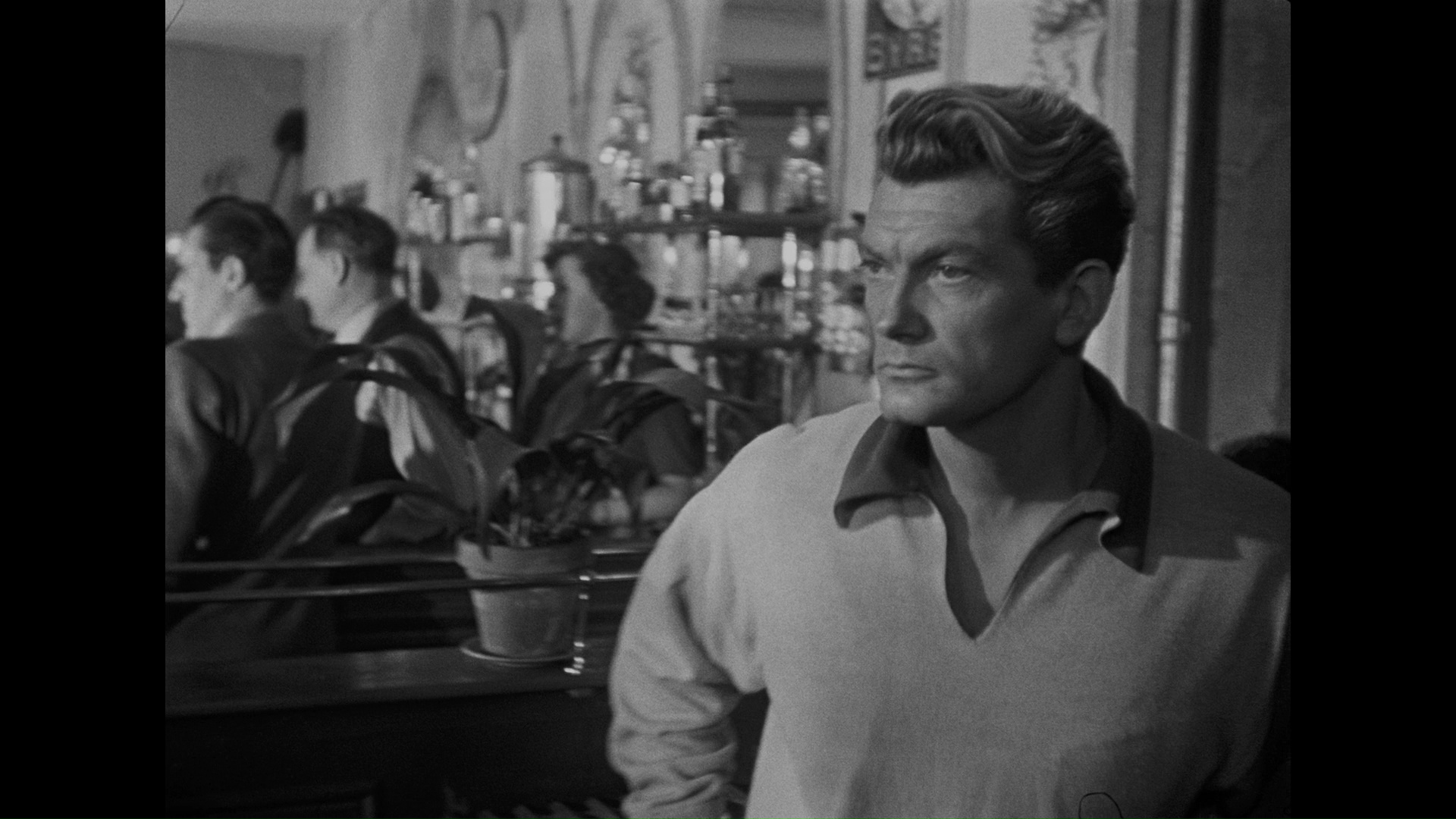 the U.K., the BFI first issued Cocteau's film on DVD in 2004 and then again in 2008, that latter featuring the same restoration and an audio commentary by Roland-François Lack who does a good job of sketching in the intersections of the director's life and art in this film. However, there are also many long gaps of silence throughout, so be prepared to fast forward a bit. Also included are a "Jean Cocteau" appraisal (35m34s) by Cocteau Committee
the U.K., the BFI first issued Cocteau's film on DVD in 2004 and then again in 2008, that latter featuring the same restoration and an audio commentary by Roland-François Lack who does a good job of sketching in the intersections of the director's life and art in this film. However, there are also many long gaps of silence throughout, so be prepared to fast forward a bit. Also included are a "Jean Cocteau" appraisal (35m34s) by Cocteau Committee 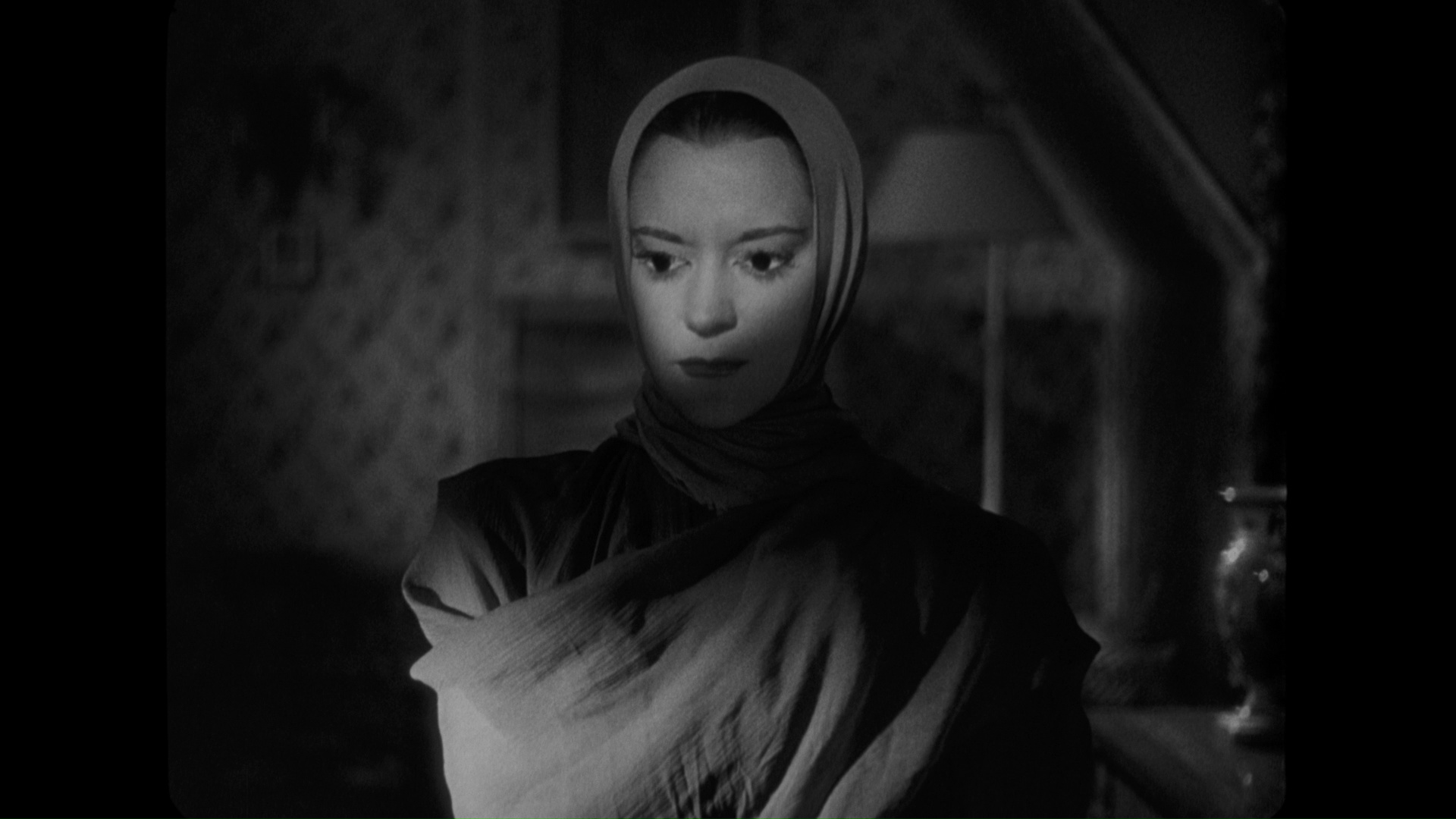 president Pierre Bergé and author Dominique Marny (filling in the major details of Cocteau's personal life from childhood onward and discussing how poetry was the center of his artistic expression), "Memories of Filming" (15m53s) with Jean-Pierre Mocky and Eric Le Roy (with the veteran director himself sharing his recollections of the shoot), and "Jean Cocteau and His Tricks" (13m32s) with Marc Caro and Orpheus assistant director Claude Pinoteau (a study of how his in-camera visual magic was achieved.
president Pierre Bergé and author Dominique Marny (filling in the major details of Cocteau's personal life from childhood onward and discussing how poetry was the center of his artistic expression), "Memories of Filming" (15m53s) with Jean-Pierre Mocky and Eric Le Roy (with the veteran director himself sharing his recollections of the shoot), and "Jean Cocteau and His Tricks" (13m32s) with Marc Caro and Orpheus assistant director Claude Pinoteau (a study of how his in-camera visual magic was achieved. 